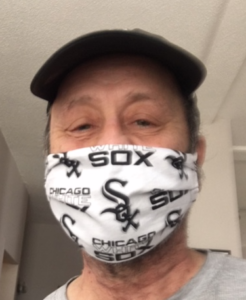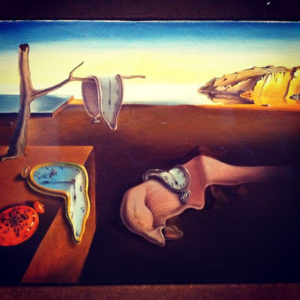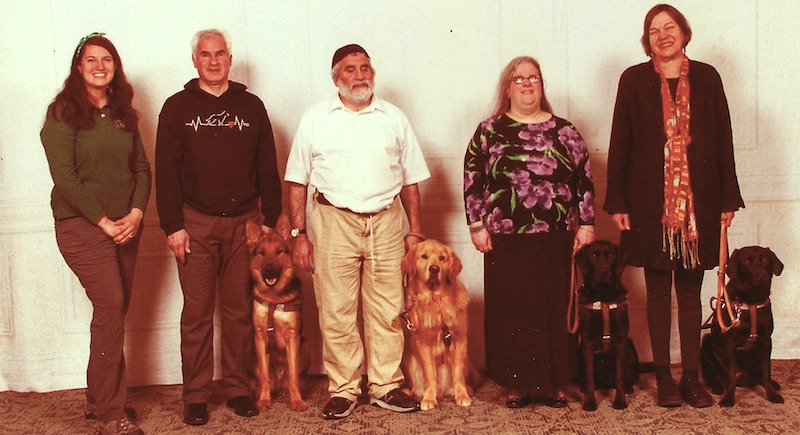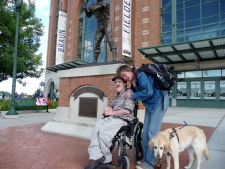Questions Big Kids Ask: Are Seeing Eye Dogs Taught Social Distancing?
May 21, 2020 • 6 Comments • Posted in blindness, guide dogs, Seeing Eye dogsSchool closures this year meant our presentations to students were cancelled, too. It’s been months since I shared new questions little kids ask about working with Luna, my Seeing Eye dog. I miss them!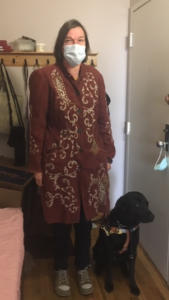
Big kids to the rescue! Here’s a sampling of questions students in my memoir-writing classes have been asking me lately, along with some answers:
- Did Luna miss Mike when he was gone because of his Covid-19 illness? Yes. As Mike likes to say, he and I had established “separate kingdoms” at home for the ten days he was sick here before being admitted to the hospital. I slept on a pull-out bed in my office, His kingdom was our bedroom, and as his illness continued to get worse, he spent days and nights in bed there with the door closed. I didn’t want to be far from home, so I kept Luna’s walks very routine. And short. Boring for her, and she expressed her ennui by lying flat on her stomach with her chin on the floor.
- After Mike was admitted to the hospital, do you think Luna knew he was gone? Yes. Afraid of being exposed to the virus, I kept the door to his kingdom closed the entire time he was away. Luna started looking out the window hoping to find him.
- Does she like to play? Yes! Dog parks in our area are closed right now, so she’s left to chase her ball and Nylabones around the house. Mike throws a ball better than I do, see above about her searching out the window for him while he was away.
- Was Luna a comfort to you while Mike was away? Luna was a tremendous comfort to me throughout Mike’s illness. She’s a good listener.
- Was it hard to take care of Luna when Mike was in the hospital and you were all alone with her? The Seeing Eye trains all of its graduates to care for our dogs on our own, whether we live alone or with others. It’s dark when she goes for her last outing of the day, and for safety’s sake here in the city he usually takes her out for that final “empty.” Without him here, I donned a mask for Luna’s nightly walk and, assuming bad guys are staying home during the pandemic, I wasn’t scared.
- Did you know that the city ordinance to pick up after your dogs specifically exempts blind people and their service dogs? Yes, but I always pick up aftr Luna anyway. Here’s why: I hate stepping in poop left behind by other dog’s. I couldn’t feel so righteous barking, as it were, about the negligence of other dog owners if I didn’t pick up after Luna myself. Bonus: picking up after her consistently is a good way to make sure she isn’t sick and/or hasn’t eaten anything rotten.
- But how do you pick up after her if you can’t see? We’ve designated a couple neighborhood spots for her to, well, go, and I take her harness off when we get there. With her leash still in my hand I can sense she is walking around in countless circles, and when she finally stops circling I feel for her back. If it’s rounded, it’s #2, I place my foot near her tail, slip a plastic bag over my right hand, reach down to feel through the bag for warm lumps, pick them up, fold the bag over my palm, tie a knot in the bag and deposit it in the nearest trash can.
- Does your dog get confused when you wear a mask? Well, she doesn’t balk if I’m wearing the mask and call her to come, and she follows my commands en route, which means she can hear my muffled voice through the mask. Her sense of smell is wayyyyyyyyy stronger than her sense of sight or sound, so if anything is confusing her right now, it’s my aroma: I didn’t used to wash my hands every 20 minutes!
- Are you (and Luna!) enjoying the relative lack of car traffic compared with normal times? Not really. I rely on the surge of traffic at my parallel to recognize when the signal is green, and with so little traffic now I’m not always sure.
- How does she do with social distancing? With Mike back home and feeling better now, I feel more comfortable going on long walks with Luna to keep her guiding skills sharp. Luna was trained at the Seeing Eye to slip us by obstacles (including people) without either of us brushing them when we do. She doesn’t know to keep six feet away, though! On these longer walks through the city, footsteps and voices of people walking ahead of us in the same direction alert me we’re coming close, and when that happens, I just stop, give Luna the “sit” command, and wait. When we can’t hear them anymore,. I pick up her harness, command “Forward!” and we’re off again. It’s harder to detect people standing still or walking towards us, especially if they’re the silent type. I talk more to Luna during walks now, trust others will look up, see us coming, and slide six feet away to the side. As far as I can tell, they do!
- Luna is so young, do you worry being home so much will make her forget everything she just learned at the Seeing eye? I wrote a post about a phone call The Seeing Eye had with graduates earlier this month, and during that call they assured us our dogs won’t lose their skills. They also reminded us how important it is to correct our dogs if they start getting a little sloppy. Luna is a bouncing bundle of black Lab energy — she loves getting outside and going to work. She is so enthusiastic, though, that when we get to a street without any traffic she sometimes forgets to stop. I give her a correction, either verbally or with the leash, then show her where she made her mistake by bringing her back to the curb and commanding “Sit!” I tap the curb with my footthen and praise her. “Good girl, Luna! Here’s where you stop. Good girl!” We take a few steps backwards then, maybe two dog lengths, and we re-work the approach to the curb. Luna almost always, always gets it right the second time. And when she does? I praise the bejeezus out of her. “Good girl,Luna! Attagirl!” I rub her up. Her tail wags. “Good girl, Luna. Good girl!” Luna eats it up, and she rarely misses that curb again.
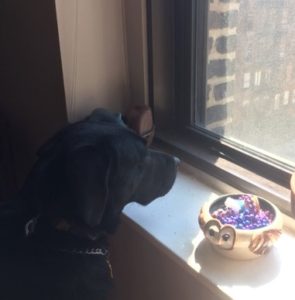 Luna is curled in a ball sleeping under my desk as I type this, but once I hit the “save” button and grab my shoes, she’ll jump up ready to go. I’ve been trying to keep a routine going, and that includes an hourlong walk each morning. It’s good for both of us.
Luna is curled in a ball sleeping under my desk as I type this, but once I hit the “save” button and grab my shoes, she’ll jump up ready to go. I’ve been trying to keep a routine going, and that includes an hourlong walk each morning. It’s good for both of us.
If you missed it, grab a Kleenex and read this beautiful post Mike wrote about his experiences for his Mondays with Mike column after returning home from the hospital clear of COVID last month.
